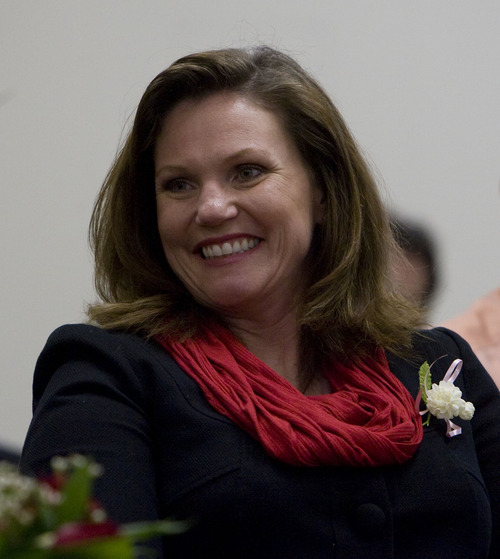This is an archived article that was published on sltrib.com in 2011, and information in the article may be outdated. It is provided only for personal research purposes and may not be reprinted.
For Syracuse Mayor Jamie Nagle, the decision came down to basic economics. Her city spent $18,000 annually to retain the help of a D.C. lobbyist, but it has been a few years since that lobbyist helped secure any federal funding.
"We really haven't felt like we had a return on our investment," she said, and as a result the city cut ties with lobbyist Tim Stewart in March. That leaves Clearfield as the last Davis County municipality to employ a Washington lobbyist, and a few weeks ago city leaders renegotiated its contract to save money.
Cities in Davis County and elsewhere have stepped back their lobbying efforts in reaction to the downfall of earmarks, which are federal funds directed by a member of Congress for projects benefiting his or her district.
Just a few years ago, members aggressively sought such funds for defense contractors, universities and cities, resulting in a boom in lobbyists who specialized in obtaining earmarks. But the earmarking process became mired in ethics scandals and budget debates.
For the first time this year, both parties have promised to forgo earmarks entirely, and Utah's elected officials have increasingly criticized the practice. Sen. Mike Lee won election in 2010 in part on a no-earmarks pledge, and Rep. Jason Chaffetz has shunned earmarks since joining the House in 2008. Sen. Orrin Hatch, once one of the Senate's leading recipients of earmarks, pulled all of his requests in the last fiscal year.
"It's just that the sentiment back there right now is that earmarks are not popular," Nagle said. "Why pay a lobbyist to try to convince them otherwise?"
Stewart says he agrees.
"Given how dysfunctional Congress has been over the past year or two, few municipalities with hired lobbyists have had much of a return on investment," he said.
But Stewart, who has lobbied for Syracuse since 2003, said he has helped land federal funding for a police station, a community center and a park before 2008.
Nagle decided to transfer the $18,000 the city has paid Stewart to the city's fund for road repairs.
While a minor part of the decision, Nagle did say she was also put off by Stewart's involvement in a 2010 campaign ploy known as "the temple mailer," where supporters of Sen. Bob Bennett made it appear as if Lee was attacking him using the Mormon faith. Stewart has been closely aligned with Bennett for years and now works with him in a lobbying firm.
"Politics is getting more and more polarized all the time, and that polarization has caused paralysis. I think those kind of actions just exacerbate those problems," Nagle said.
Stewart declined to comment on the temple mailer.
Clearfield City Manager Chris Hillman remains bullish on the city's federal lobbying efforts, saying that since 2007 the city has pulled in $1.5 million in earmarks. The most recent involved about $500,000 obtained by Rep. Rob Bishop, R-Utah, for digital dash cameras installed in police cruisers.
Still, Hillman recognizes the changes in Congress and renegotiated with lobbyist Allen Freemyer to cut the city's bill by $24,000 a year to $72,000.
"We significantly revamped our contract with them," Hillman said, "because things have changed significantly back there relative to earmarks."
Instead of competing against other Utah interests for the earmarks directed by the state's congressional delegation, Clearfield's lobbyist now plans to seek out competitive government grants controlled by federal departments. Hillman said the city will continue to review its contract with Freemyer in the years to come.



